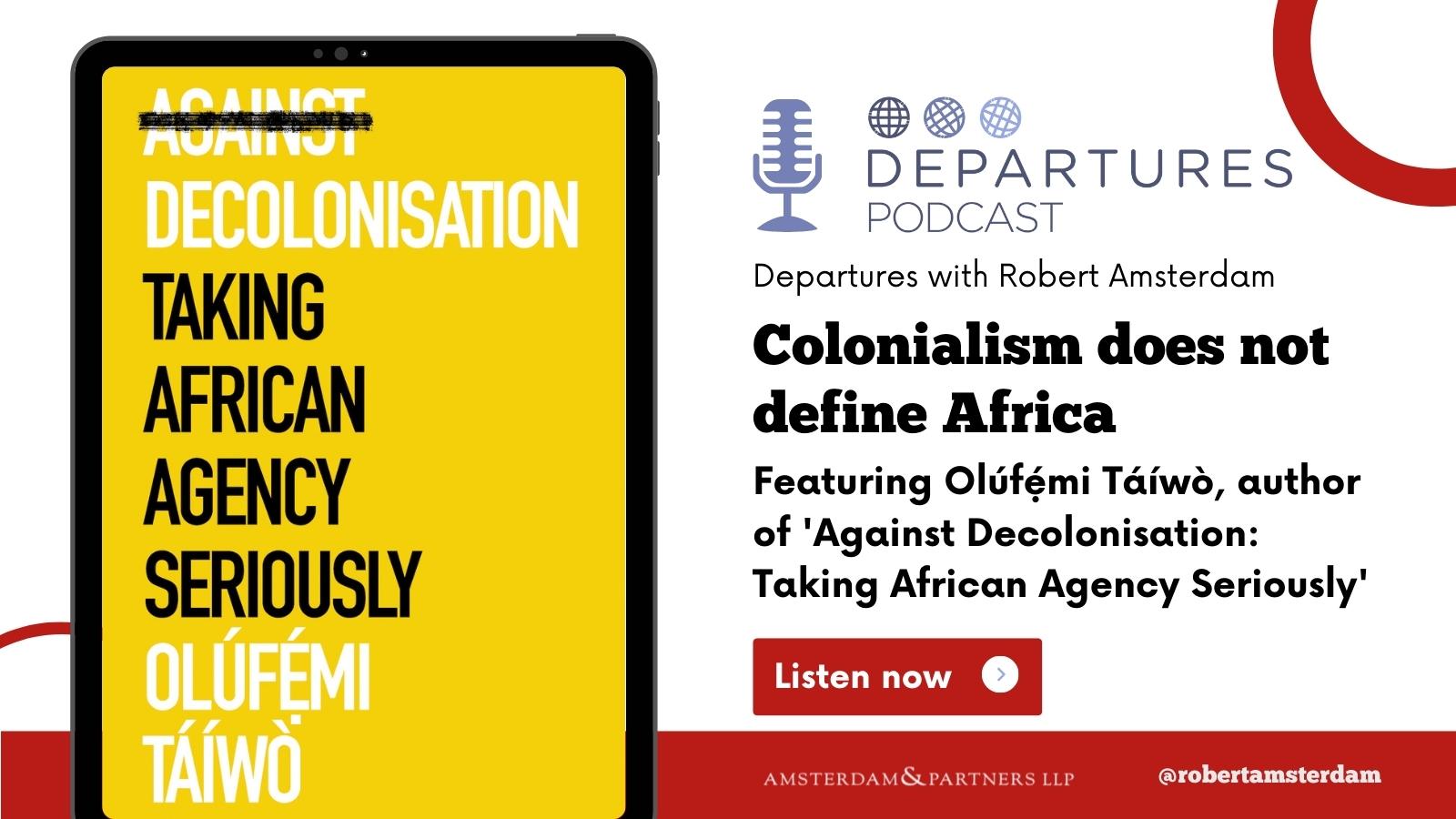Departures Podcast with Olúfẹ́mi Táíwò, author of ‘Against Decolonisation’

In recent years, the theme of decolonization has become a thriving industry. It dominates academia, it frames historical narratives, and makes its way into the deepest corners politics and culture to the point that it is inescapable.
But what has decolonization done for us lately, asks Cornell University Professor Olúfẹ́mi Táíwò in his new polemic, “Against Decolonisation: Taking African Agency Seriously.”
In his conversation with Robert Amsterdam, Táíwò explains how the decolonization narrative lost its way, its meaning, and its purpose when it has been so indiscriminately applied to everything from literature, language and philosophy to sociology, psychology and medicine.
This relatively short period of history, Táíwò says, has been overwhelmingly exaggerated to the point that it has deprived Africans of agency and continues to hamper thought and innovation.
Pointing to the example of South Korea forming a national identity and history in which Japanese colonalism was an episode, not an origin story, Táíwò and Amsterdam also discuss the many ways in which modern authoritarians and despots in Africa use the decolonization narrative to engender further abuses upon their populations.
Táíwò’s book challenges traditional thinking, and demands the reader to consider whether today’s ‘decolonization’ truly serves African empowerment, or if we need to broaden our understanding of a more complex history.











